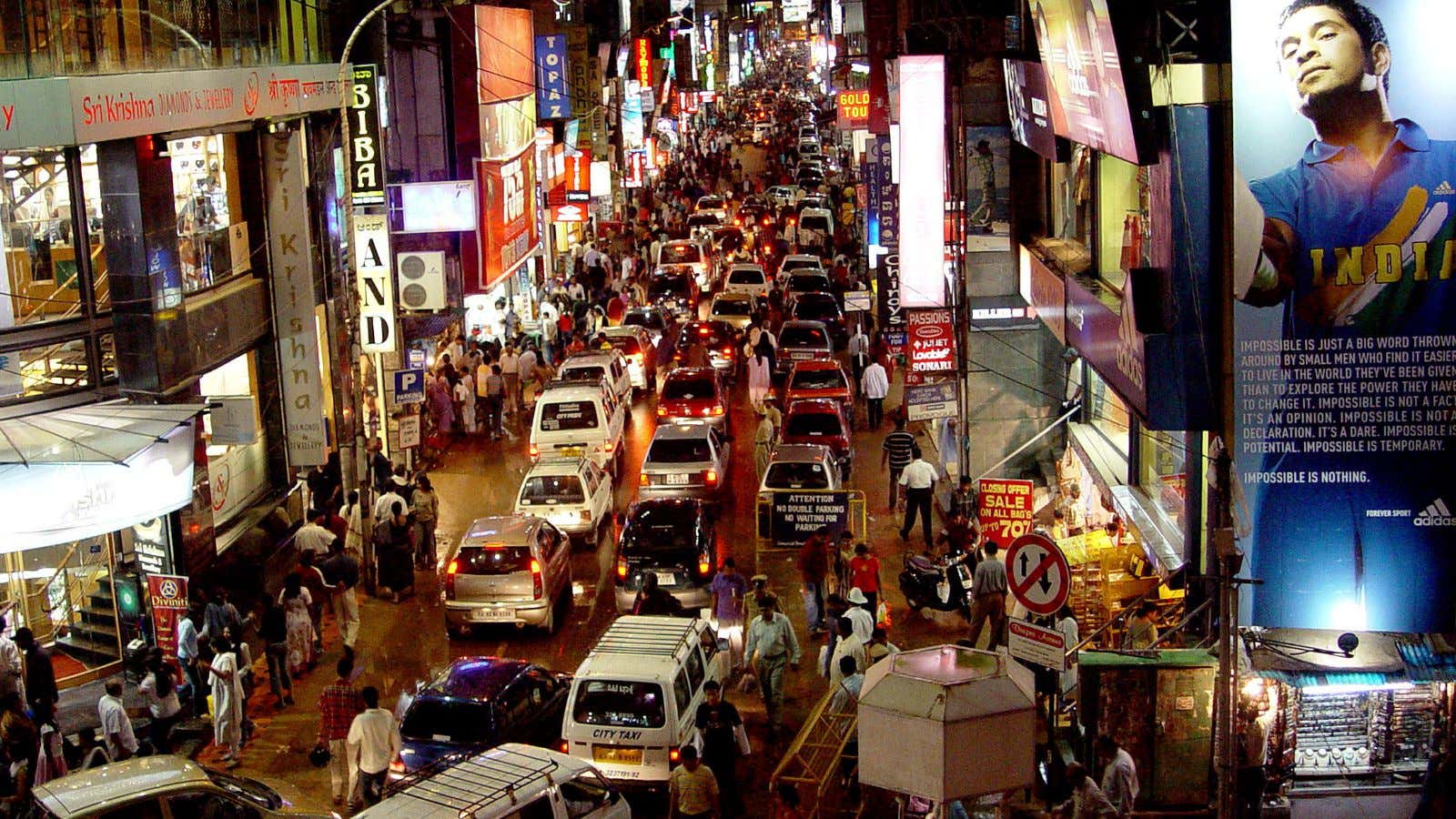Bangalore has a lot going for it. India’s Silicon Valley, it’s the backbone of the country’s $118 billion information technology (IT) industry, churning around some 33% of India’s total IT exports.
So, for a few decades now, the IT industry’s brightest engineers and managers have been making a beeline for the former cantonment town, which has struggled to keep pace with the high-tech gold rush.
The result is that the city is perennially and painfully gridlocked. In 2011, IBM ranked Bangalore the sixth worst on its Commuter Pain Index, ahead of New Delhi, with some of the longest traffic delays in the world.
And for the city’s celebrated software industry, that translates into over $6 billion worth of man hours spent stuck in traffic.
That includes the likes of Amazon, Microsoft, Infosys, Wipro, TCS and every other major technology company in the world, since they all have a presence in Bangalore.
There are, of course, several other industries in the city, as well as non-monetary costs to spending time in traffic. But here is a rough estimate of the cost of traffic in the context of the IT industry.
The rough math
Bangalore had a total of 800,000 workers in the IT exports and the Business Process Outsourcing (BPO) sectors in 2012, according to the Karnataka ICT Committee. B.V. Naidu, co-chairman of the committee, estimates that the workers are evenly split between the both the sectors.
Each employee, Quartz estimates after speaking to various industry members, spends at least 2 hours every day on an average for commuting. For a 235-day working year comprising of five-day weeks, that comes to a total of about 470 hours a year per employee spent on the road.
Now, to arrive at the total number of hours the IT and BPO industry loses to Bangalore traffic every year, simply multiply 400,000 IT and BPO employees each by 470 hours—188 million hours for each industry.
Meanwhile, revenue per employee for IT exports during FY14 stood at $44,000 and $21,000 for BPO exports, according to data shared by NASSCOM. Assuming people work for eight hours through 235 working days, the average hourly revenue per IT employee comes out to be $23.40. Similarly, for BPO employees it is $11.17.
Finally, given that 188 million hours are spent on the road by employees from both the sectors, we multiply 188 million hours by $23.40 for IT and by $11.17 for BPO.
And there it is, the annual monetary cost of traffic to Bangalore’s IT & BPO industries: $6.50 billion (Rs39,6087.41 crore).
Why so bad?
It’s partly because Bangalore has a road density of 8.2 kilometre (km) per square km, the lowest among big Indian cities. Delhi, on the other hand, has a road density of 21.6 km per square km. “What adds to the traffic pressure in Bangalore in particular is that there is very little scope for expansion of roads,” says the Bangalore Traffic Police.
On such a road network, Bangalore supports 5 million vehicles, not far from Delhi in terms of vehicle density. As a result, the average speed on the city’s roads during peak hours has dropped to 15 km per hour.
“It [commute] is a big problem,” says Naidu. “People easily spend 2-3 hours traveling up and down, it is a big problem.”
What’s it worth?
That’s roughly the amount of money spent during the US elections in 2012—most expensive in the history of the country. It can also buy you a lot of things.
